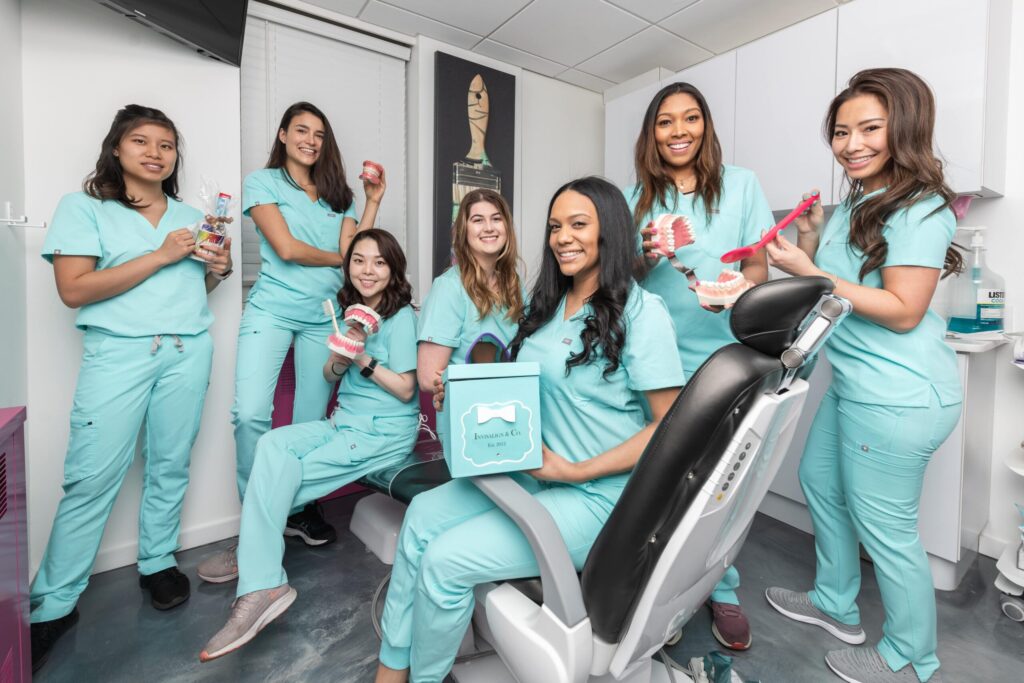Executive Summary & Key Takeaways

Your mouth is part of your body’s immune and metabolic network. Gum disease (periodontitis) doesn’t just stay in your mouth; it’s linked with conditions like heart disease, diabetes, pregnancy complications, and respiratory infections. Researchers and leading organizations emphasize associations rather than proven cause for most conditions, but the direction is clear: better oral care supports better overall health. Keeping gums healthy, controlling plaque, and seeing your dentist routinely can reduce inflammation and improve well‑being.
What Is the Mouth–Body Connection? (Oral–systemic health explained)
How Oral Health Affects Overall Health: The Mouth-Body Connection means problems in your gums and teeth can echo throughout your body. Healthy gums are tight, pink, and don’t bleed. When plaque bacteria trigger gum inflammation, the tissues become sore and leaky. That opens a path for bacteria and inflammatory molecules to circulate and stress other organs. Leading dental and medical groups recognize strong associations between periodontal disease and systemic conditions; they also note that proving direct cause is complex. Still, protecting oral health is a practical, low‑risk way to support total health.
How Local Mouth Problems Spark Body‑Wide Effects (Mechanisms)
Transient Bacteremia: How gum bacteria reach the bloodstream
Everyday activities like chewing or brushing can let bacteria slip into the blood if gums are inflamed. In people with certain heart conditions, this matters because oral bacteria can seed heart valves and tissues, raising the risk of infective endocarditis (a dangerous heart infection). That’s why antibiotic premedication is reserved only for a small, high‑risk group before invasive dental work; for everyone else, the best defense is excellent daily oral care.
Chronic Inflammation & Immune Overload (cytokines, biomarkers)
Ongoing gum inflammation can elevate inflammatory signals that raise the body’s “background” inflammation. This may help explain why periodontitis clusters with other chronic diseases that share risks like smoking, diet, and stress. Lowering gum inflammation (through cleanings, home care, and risk reduction) supports the whole immune system.
Shared Risk Factors (smoking, diet, stress, sleep, socioeconomic factors)
The same habits that harm the mouth often harm the heart, blood sugar, and lungs. That’s why a single prevention plan—brushing, flossing, healthy eating, quitting tobacco, regular checkups—pays dividends across your health.
Major Conditions Linked to Gum Disease (Evidence Overview)
Heart & Blood Vessels (atherosclerosis, endocarditis risk)
Large reviews show an association between periodontal disease and atherosclerotic vascular disease (conditions that underlie heart attacks and strokes). These data support a link, not direct causation, and emphasize shared risks. Even so, medical and dental experts advise controlling gum disease to reduce overall inflammatory burden—and reserving antibiotics before dental procedures for only the highest‑risk cardiac patients.
The Two‑Way Street with Diabetes (glycemic control & periodontitis)
Diabetes can worsen gum disease, and gum inflammation can, in turn, make it harder to control blood sugar—a two‑way street. Improving periodontal health may modestly improve glycemic control while also lowering tooth loss risk. Regular dental care and excellent home care are essential parts of a diabetes plan.
Pregnancy & Early Childhood Health (gingivitis, prenatal care)
Pregnancy hormones can increase gum sensitivity and inflammation, so gingivitis is common during pregnancy. National health agencies encourage routine dental care before, during, and after pregnancy to lower the risk of cavities in mom and baby and to support better outcomes.
Lungs & Breathing (aspiration pneumonia, COPD associations)
Oral bacteria can be inhaled into the lungs—especially in frail or hospitalized adults—contributing to aspiration pneumonia. Reducing dental plaque and improving oral hygiene are linked with lower pneumonia risk in vulnerable groups.
Brain & Joints (cognition, rheumatoid arthritis — emerging links)
Research is exploring connections between periodontal inflammation and cognitive decline or rheumatoid arthritis. Evidence is still developing, but the pattern is consistent: chronic oral inflammation travels with other chronic conditions, so prevention remains a smart strategy.
Early Warning Signs in Your Mouth (what to watch for)
Mouth Sign | What It Might Mean | What To Do Next |
Bleeding when brushing/flossing | Early gum disease (gingivitis) | Improve home care; book a professional cleaning |
Puffy, tender, or receding gums | Periodontitis risk | Ask for a periodontal exam and gum‑depth charting |
Persistent bad breath | Plaque build‑up; dry mouth; sinus issues | Professional cleaning; discuss saliva and rinses |
Loose teeth or shifting bite | Bone loss from periodontitis | Periodontal therapy and close follow‑up |
Mouth sores or white/red patches | Irritation or other conditions | Get a professional evaluation promptly |
Dry mouth (xerostomia) | Medication side effect; higher cavity risk | Moisturize mouth; fluoride; talk to your clinician |
Daily Habits That Protect Mouth & Body (practical checklist)
Brush, Floss, Fluoride, and Rinses (simple routine, big results)
Brush twice daily for two minutes with a fluoride toothpaste. Clean between teeth once daily with floss or interdental brushes. Add a fluoride rinse if you’re cavity‑prone. Keep a soft brush, gentle pressure, and small circular motions.
Food, Saliva, and the Oral Microbiome (diet, hydration, xylitol)
Eat balanced meals rich in vegetables, protein, and dairy or fortified alternatives. Limit frequent sipping of sugary or acidic drinks that can dry the mouth and feed harmful bacteria. Drink water often; sugar‑free gum with xylitol may help stimulate saliva.
Tobacco, Vaping, and Alcohol (risk reduction that pays off)
Tobacco and heavy alcohol use increase gum disease, oral cancer risk, and tooth loss. Quitting brings quick benefits for gums and long‑term benefits for your whole body. Ask your care team for cessation support.
Dental Checkups & Professional Cleanings (preventive care timeline)
Most people do well with cleanings every six months; if you have gum disease, your dentist may recommend three‑ or four‑month intervals to keep inflammation down. Consistent maintenance is the secret to long‑term stability.
When Treatment Is Needed: From Gums to Full‑Mouth Rehab
Non‑Surgical Periodontal Therapy (scaling, root planing, reevaluation)
Your dental team removes deep plaque and tartar from below the gumline, smooths root surfaces, and coaches you on home care. After 6–8 weeks, they recheck gum depths and bleeding. If areas don’t respond, advanced care (like localized antibiotics, surgery, or referrals) may be needed.
Restorative & Alignment Options (crowns, bridges, aligners)
When teeth are damaged or missing, restoring proper function helps you chew, speak, and maintain nutrition—vital for whole‑body health. Options include tooth‑colored fillings, Dental crowns & bridges treatment, implants, and—in the alignment category—Smile correction with Invisalign for discreet bite correction. Well‑planned restorations, paired with healthy gums, reduce inflammation sources and make daily cleaning easier.
Special Situations (kids, pregnancy, older adults, chronic illness)
- Kids: Start brushing as soon as the first tooth erupts. Schedule the first dental visit by age one. Sealants, fluoride, and healthy snacks prevent decay.
- Pregnancy: Keep up routine cleanings; tell your dental team you’re pregnant. Manage nausea and dry mouth; rinse with water after vomiting to protect enamel.
- Older adults: Dry mouth from medications raises cavity risk—use fluoride rinses and gels, and sip water often. Caregivers should help with daily oral hygiene when needed.
- Chronic illness: If you have diabetes, heart disease, lung disease, or autoimmune conditions, treat your gums as part of your medical care plan and prioritize maintenance visits.
Build Your Mouth–Body Care Team (dentist, hygienist, MD, RD)
Coordinate with:
- Dentist & Dental Hygienist: Diagnosis, cleanings, periodontal therapy, risk‑based maintenance.
- Primary Care & Specialists: Align on conditions like diabetes, cardiovascular disease, pregnancy, or lung disease.
- Registered Dietitian: Nutrition for saliva support and glucose control.
- You: Daily home care champion and the first to notice changes.
FAQs
Q1. Is gum disease proven to cause heart disease?
A. Large studies show a strong association, but not definitive proof of causation. Reducing gum inflammation is still recommended because it lowers overall inflammatory burden and supports cardiovascular health.
Q2. Do I need antibiotics before dental visits if I have a heart murmur?
A. Most people do not need antibiotics. Only those with specific, highest‑risk heart conditions may need them before certain procedures—ask your cardiologist and dentist.
Q3. How does diabetes affect my gums—and vice versa?
A. Diabetes can worsen gum disease and infections; gum inflammation can make blood sugar harder to control. Tight oral hygiene and regular dental care are key parts of diabetes management.
Q4. Is dental care safe during pregnancy?
A. Yes. Cleanings and most routine care are safe and encouraged. Good oral health in pregnancy supports better outcomes for mom and baby.
Q5. Can better oral hygiene really lower pneumonia risk in frail adults?
A. Improving oral care can reduce the bacterial load in the mouth and has been linked to lower rates of aspiration pneumonia in vulnerable groups.
Q6. How often should I get my teeth cleaned if I’ve had gum disease?
A. Many people need maintenance every 3–4 months to keep inflammation in check, paired with meticulous home care. Your dentist will tailor the schedule based on your response to treatment.
Conclusion & Next Steps
Keeping your mouth healthy is one of the simplest, most cost‑effective ways to support your entire body. The science is clear about the connection—even when causation isn’t fully established—and your daily routine makes a real difference. Remember the core message behind How Oral Health Affects Overall Health: The Mouth-Body Connection: small, consistent oral‑health habits compound into whole‑body benefits. Start today—brush, floss, eat well, quit tobacco, and keep your dental visits—so your mouth and body can thrive together. For a clinician‑level overview, see the ADA’s summary of the oral–systemic connection.





